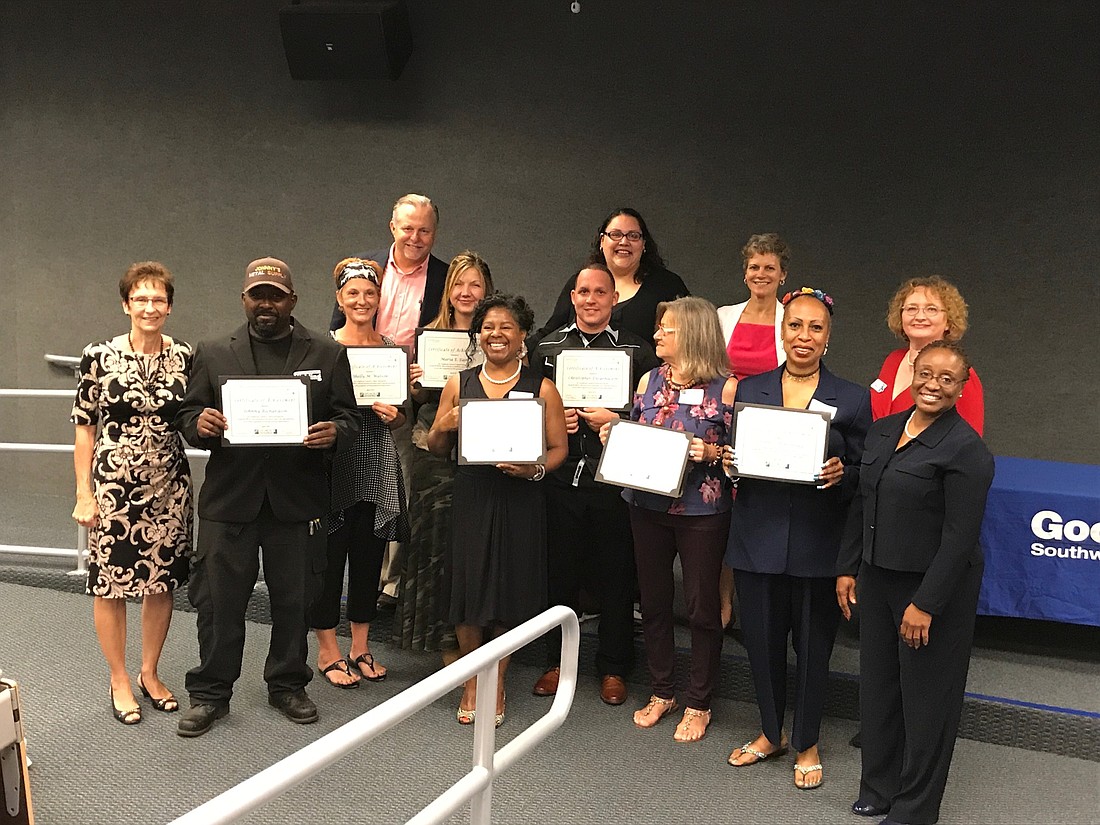- November 23, 2024
-
-
Loading

Loading

The Goodwill MicroEnterprise Institute was born during a crisis — in 2010 in response to the recession. “A group of community leaders got together and did multiple sessions about how do we get people back to jobs or businesses,” Program Coordinator Dorothy Browning says. “They came across the concept of microenterprises.”
The program, an initiative of Goodwill Industries of Southwest Florida, based in Fort Myers, has since spent the past decade giving people the knowledge needed to become an entrepreneur, with a specific focus on people with low- to moderate-incomes. It's notched some big successes in that time: More than 900 graduates are now equipped with skills to start a small business, and alumni have launched some 460 businesses.
Just like in 2010, the current economic crisis brought on by the pandemic has led to more demand for the institute's curriculum. Only now the programs are virtual. “There are more startups on paper and people registering for businesses than there have been in a while,” Browning says. “We kind of saw the same thing when the program started, when people didn’t have jobs. The first couple of years, the program’s classes were bursting at the seams.”
More than 90% of businesses in Florida are micro-enterprises, Browning says, with five or fewer employees and requiring $50,000 or less to start. “It’s a big part of the economy, but it’s kind of under the radar,” she says.
In February, Browning and Program Manager Sandra Plazas plan to kick off the 93rd class of the Goodwill MicroEnterprise Institute. Students come in with a business idea or an existing business they need help making more successful. “I would say 20% of the folks who go through the class are in business, and they needed some help to ramp it up or sustain it,” Browning says.
To be eligible for the program, students must live in Lee, Collier, Charlotte, Hendry or Glades counties or in North Port, in south Sarasota County. If students are low- to moderate-income, they can attend the program for free. In place of a fee, they are required to volunteer for eight hours at a nonprofit or do an internship at a business. If there is space available, students with a higher income are allowed to take the course. Those students are asked to pay $80 for the cost of the program's workbook.
‘The class really focuses on what is it going to take in terms of cash to get you in business and keep you in business.’ — Dorothy Browning, Goodwill MicroEnterprise Institute
The institute’s curriculum is based on programs developed by the Kansas City-based Kauffman Foundation, an entrepreneur think tank. “The class really focuses on what is it going to take in terms of cash to get you in business and keep you in business,” Browning says.
During the program, students attend three-hour courses two nights a week for six weeks for a total of 12 classes. Subject matter experts teach courses about their area of expertise, including lawyers, accountants, bankers, business insurance agents, social media experts and marketing experts. “A lot of participants haven’t had the chance to sit down with an attorney or marketing expert,” Plazas says. “It gives them the chance to ask questions.”
Students also learn from people who have walked the entrepreneurial path. “The real secret sauce of the class, we think, is we have facilitators for the class, but we also have business coaches,” Browning says. Coaches spend time with students in smaller groups of about five people. That’s when they discuss how the concepts they’re learning in class apply to the business they want to start. Coaches also reviews students’ homework and give feedback about their business plans. “We try to pick people who have been in business for themselves,” she says. “We think it’s important that they’ve been down that road and had to make payroll.”
During the program, students write plans for their ventures. “We build a feasibility plan, which is 80% of a business plan,” Browning says. “It’s a great strategic plan. It’s the guts of a business plan.”
The virtual format allowed the program to continue during the coronavirus, but it also caused some challenges. “A lot of people who fall into low- to moderate-income didn’t have enough broadband or didn’t have a computer or something to stream classes,” Plazas says. “We tried to work with them.” That meant opening Goodwill’s community resource centers for students who needed internet access or a computer. In May, the program is expected to start back up with in-person classes.
At the end of the program, students share vision boards, feasibility plans and business pitches at an event with family and friends. “The class itself is really an energizing experience for participants,” Browning says.
Graduates have gone on to start a diverse range of enterprises, from a cupcake shop to an embroidery business. Some businesses are full-time pursuits while others are part-time initiatives that provide an income boost. “I think it opens up the opportunity for entrepreneurship to that low- to moderate-income group,” Browning says. “This is a unique opportunity for a program that respects where they’re coming from.”